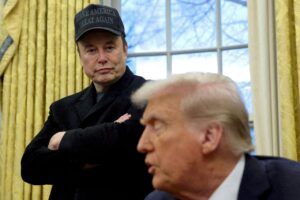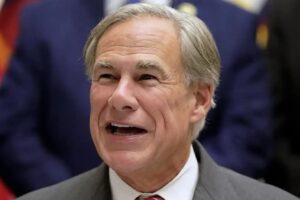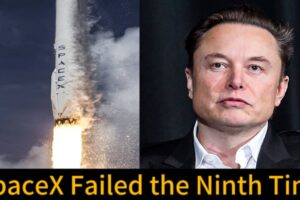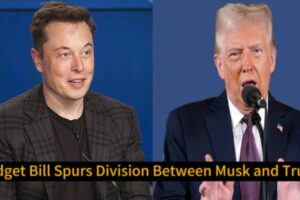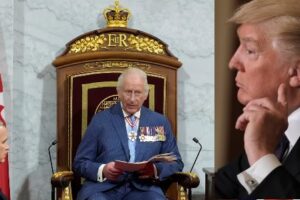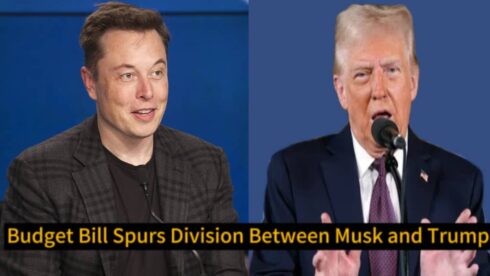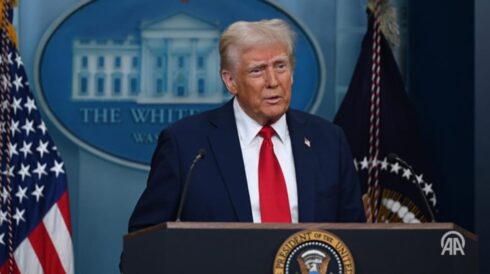Elon Musk, billionaire entrepreneur and CEO of Tesla and SpaceX, made headlines after publicly criticizing the recently passed budget bill in an exclusive interview with CBS. Departing from his usual political neutrality, Elon Musk voiced clear dissatisfaction with the scale of the federal government’s new spending plan, stating: “I was disappointed to see the massive spending bill, frankly, which increases the budget deficit and undermines what DOGE is doing.” His remarks came as a surprising break from Donald Trump, who had earlier praised the bill’s broad allocations.
Elon Musk’s criticism marks a rare instance of divergence between two influential public figures who have shared similar populist tones in their online presence. Elon Musk emphasized that such uncontrolled fiscal expansion could have long-term consequences for the U.S. economy, especially in the context of decentralized financial systems. His reference to Dogecoin (DOGE), a meme cryptocurrency he’s frequently endorsed, underscores his belief that the bill works against the decentralization of finance, potentially steering the country away from economic innovation.
Budget Bill Spurs Division Between Musk and Trump
Elon Musk’s statement has ignited controversy, as it openly challenges Donald Trump’s stance on the bipartisan budget legislation. Trump, in a recent rally, praised the bill as a “necessary boost” to defense and infrastructure, labeling it a win for American workers. Musk, however, described it as “fiscally reckless,” arguing that it compounds a growing federal debt crisis and sends the wrong message to innovators in the fintech and crypto sectors.
This divergence is particularly striking given Elon Musk’s previous alignment with certain anti-establishment views shared by Trump. While both figures have criticized legacy media, Big Tech censorship, and globalism, this issue exposes a stark contrast in economic philosophy. Musk’s emphasis on decentralized finance suggests a vision of the future that resists traditional government control—a sharp deviation from Trump’s embrace of state-driven economic stimulus.
DOGE Undermined: Musk Points to Crypto Disruption
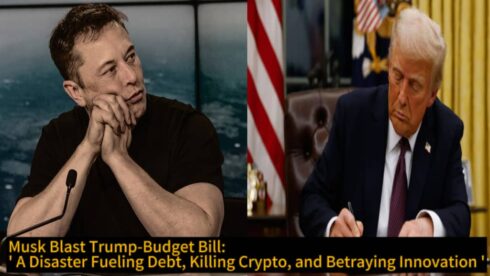
Elon Musk doubled down on the implications for cryptocurrency, especially Dogecoin, which he has often championed as a “people’s crypto.” According to Musk, the budget bill’s inflationary pressures and increased monetary supply could erode public trust in the dollar, leading to volatility that stifles the growth of alternative currencies. “What we’re seeing,” Musk noted, “is a government policy that discourages innovation by reinforcing fiat dependency.”
While critics have accused Musk of using DOGE to manipulate markets, his latest statements show a deeper ideological commitment to decentralized finance. By linking the bill to the undermining of Dogecoin, Musk highlights what he sees as a systemic resistance to blockchain-based solutions. He contends that such fiscal policies reveal a misunderstanding—or deliberate avoidance—of technological disruption in the financial sector.
Economic Experts React: Divided Opinions on Elon Musk’s Stance
Elon Musk’s CBS interview has elicited mixed reactions from economists and policymakers. Some, like Dr. Ellen Peters of the National Fiscal Institute, lauded Musk for “bringing needed attention to inflationary risk.” Others, however, dismissed his criticism as oversimplified, suggesting Musk’s crypto affiliations color his economic perspective. “We cannot base national budgets on the speculative growth of meme coins,” argued economist Jerome Talsky.
Nonetheless, Musk’s remarks have amplified the ongoing debate about the role of crypto in macroeconomics. His high-profile dissent brings unconventional economic ideas into the mainstream, pushing questions about the sustainability of federal spending and the role of decentralized finance. This has triggered renewed scrutiny of both DOGE and broader Web3 projects, potentially influencing upcoming financial regulatory policies.
Political Fallout: Musk’s Influence Ripples Through Washington
Musk’s condemnation of the spending bill has already begun to reverberate in political circles. Several libertarian-leaning lawmakers have echoed his sentiments, with Rep. Thomas Massie tweeting, “Elon is right—this bill feeds the debt monster.” Conversely, establishment politicians have criticized Musk for stepping beyond his business domain, accusing him of leveraging his platform to sow distrust in governmental processes.
The timing of Musk’s comments, just months ahead of key midterm elections, adds another layer of intrigue. Analysts suggest that Musk could become an unintentional political force, mobilizing a tech-savvy, economically skeptical demographic disillusioned by both parties. His willingness to challenge a figure like Trump—often untouchable in conservative spheres—signals a growing independence that could reshape political discourse around fiscal responsibility.
Digital Economy vs. Traditional Spending: A Philosophical Divide
At the heart of Musk’s critique is a larger ideological battle between centralized economic planning and decentralized innovation. Musk’s defense of Dogecoin as a symbol of grassroots economic empowerment contrasts sharply with the traditional model of top-down government spending. “This isn’t just about crypto,” Musk asserted. “It’s about the future of economic freedom and whether we innovate or stagnate.”
Musk’s framing positions him not just as a businessman but as a thought leader shaping the contours of 21st-century capitalism. By connecting the budget bill to the suppression of disruptive technologies, he articulates a broader vision that questions the legitimacy of current fiscal orthodoxy. Whether one agrees or not, Musk has reignited a conversation on the evolving clash between government control and technological liberation.




